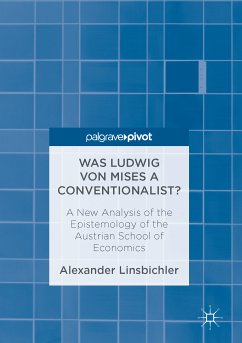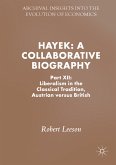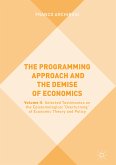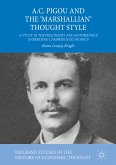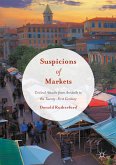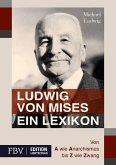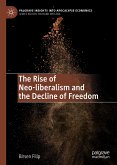-Erwin Dekker, Assistant Professor of Cultural Economics (Erasmus University Rotterdam)
This book proposes new solutions to interpretational problems of Mises' methodological position. It also offers a lucid and scholarly introduction to some important problems of the logic of science. Specialists and general readers alike will profit much from reading that book.
-Karl Milford, Associate Professor in History of Economic Thought and Philosophy of Economics (University of Vienna)
This innovative book challenges the mainstream reading of Ludwig von Mises as a contested "a priori" proponent of the Austrian School of economics. It offers new insights to Mises' methodology and epistemology by interpreting his praxeology as conventionalist. In doing so the author opens novel perspectives for contextualizing Ludwig von Mises' work in the history of the Austrian School and the long term "Methodenstreit" since the 19th century.
-Friedrich Stadler, Professor for History and Philosophy of Science (University of Vienna), Head and Director of the Institute Vienna Circle, President of the Austrian Ludwig Wittgenstein Society
This book presents a concise introduction to the epistemology and methodology of the Austrian School of economics as defended by Ludwig von Mises. The author provides an innovative interpretation of Mises' arguments in favour of the a priori truth of praxeology, thereceived view of which contributed to the academic marginalization of the Austrian School. The study puts forward a unique argument that Mises - perhaps unintentionally - defends a form of conventionalism. Chapters in the book include detailed discussions of individualism, historicism, epistemological positions, and essentialism. The author goes on to discuss Mises' justifi cation of the fundamental axiom and proposes a conventionalist interpretation. By presenting praxeology as a conventionalist research programme, the author aims at reinvigorating the interaction between the Austrian School, mainstream economics, and the philosophy of science. This comprehensive reconstruction is suitable for economists interested in the history and philosophy of their discipline, as well as for philosophers of science.
Dieser Download kann aus rechtlichen Gründen nur mit Rechnungsadresse in A, B, BG, CY, CZ, D, DK, EW, E, FIN, F, GR, HR, H, IRL, I, LT, L, LR, M, NL, PL, P, R, S, SLO, SK ausgeliefert werden.

